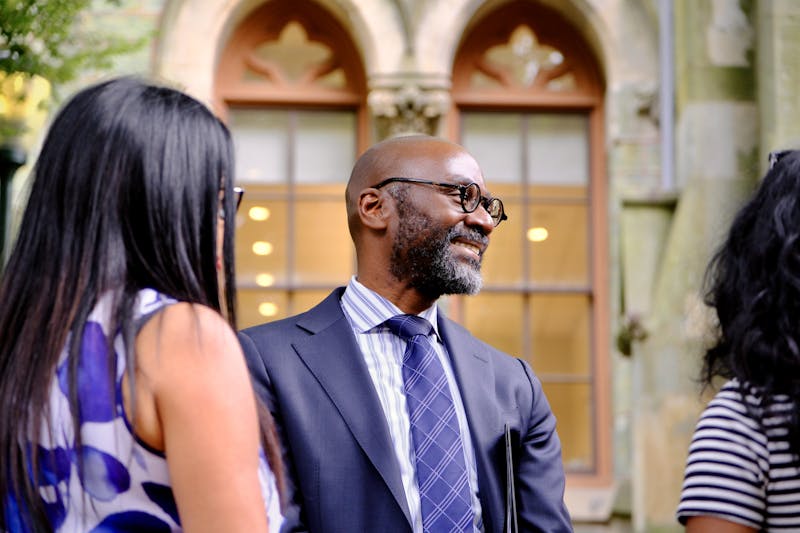
Penn's technological status was recently recognized as ninth best in the country -- up from 37th place last year -- by the Princeton Review, which ranked 25 of the nation's top 357 most "connected" universities.
Years ago, a "connected" campus meant there was a full set of working computers in the library. Today, the definition continues to change as universities offer more and more technological advantages to their students.
Rensselaer Polytechnic Institute headed the list, with Bryant University and DePauw University, coming in second and third, respectively.
The Princeton Review based the rankings on a number of criteria, including the ratio of computers to students, availability of a campus-wide network, wireless network, online registration and online courses.
Penn's Information Systems and Computing department attributes the school's huge jump in the rankings to the increase in wireless networks and the improvement in administrative systems.
Because Penn is "a large urban research complex [and] is more decentralized" in terms of its technological systems, it has to work harder to keep up with "a smaller school with a centralized system," said Michael Palladino, ISC associate vice president of networking and telecommunications. "That makes it easier to control the technology, since all the funding comes from the same place."
However, Palladino questions the validity of the survey and rankings.
"When you score well in one of these surveys, you sort of wave it around and get excited, but when you look at the list, you don't see Princeton [University] or [Massachusetts Institute of Technology], which are really well-connected."
According to Palladino, Penn's positive trend in technology acquisition will likely result in "a whole lot more digital media, video" and a "big push toward more wireless computing."
For Temple University, which ranked No. 4, the recognition stems from the school's large number of online administrative functions, as well as its increase in wireless capacities and public workstations, according to Tim O'Rourke, the school's vice president for computer and information services.
These administrative functions include registration, grades, school bills and advising. The idea behind these functions is that "before you sit down in an office, all of that information is available online," O'Rourke said.
"I think the schools have to keep up with the demands of the students," O'Rourke said. "They demand to be connected."
In terms of the future of campus technology, "the trend is going to be more for more mobile communicative activities," O'Rourke said. "Students are going to want to be connected at all times."
For Cornell University, which took the No. 6 spot, there have not been any major changes in technology in the past year, but "all of this stuff is collected over the years," Cornell spokesman Bill Steele said.
Over the course of the past decade, Cornell has established a computer ethics policy, wireless hot spots across campus and online registration, and has even made a deal with Napster, an online music service.
When students first arrive at Cornell, they are required to take a course on computer use and ethics. "Basically, I think what it says is, 'Behave yourself in cyberspace as you would in the real world,'" Steele said.
However, according to Steele, times are changing. "We used to have to show people how to get onto the World Wide Web, but now everyone shows up with their own e-mail and computers."
Although the onset of the new "technology will offer all sorts of possibilities for teachers, there will be growing pains," Steele said.
Cornell set up a one-year free trial period with Napster, and currently there is debate as to whether the university should keep the program. If administrators do continue to offer it, then students will have to pay for it as part of their tuition, even though the program is not compatible with Macintosh computers.
Still, Steele felt that some of the questions on the Princeton Review survey were misguided, and could skew the results. For instance, one question asks if tuition includes a computer.
Because "most students are showing up with computers," Steele said that "Cornell is never going to make it a rule that you buy a computer."
"Who knows what kind of computer you would get," he said, adding "so, I think those are dumb questions."
Nonetheless, technology is becoming a larger part of university life and will continue to grow.
The Daily Pennsylvanian is an independent, student-run newspaper. Please consider making a donation to support the coverage that shapes the University. Your generosity ensures a future of strong journalism at Penn.
DonatePlease note All comments are eligible for publication in The Daily Pennsylvanian.







